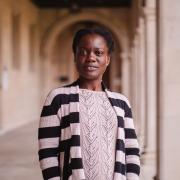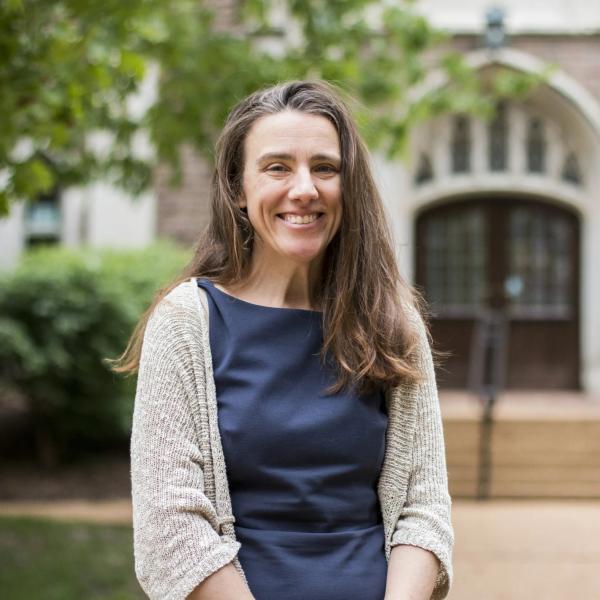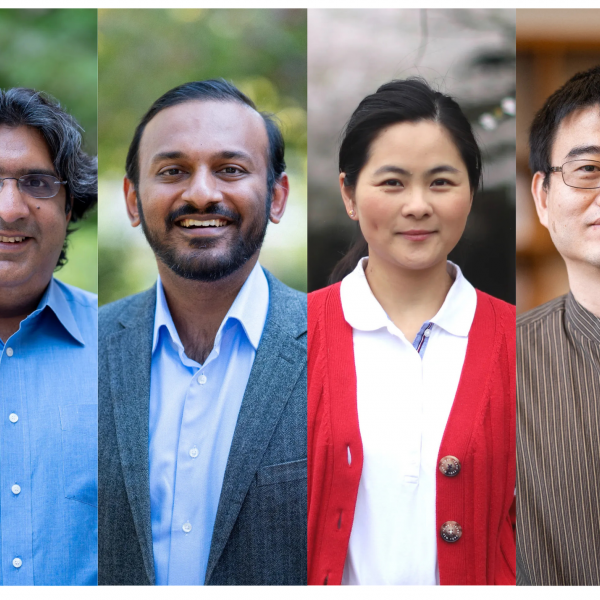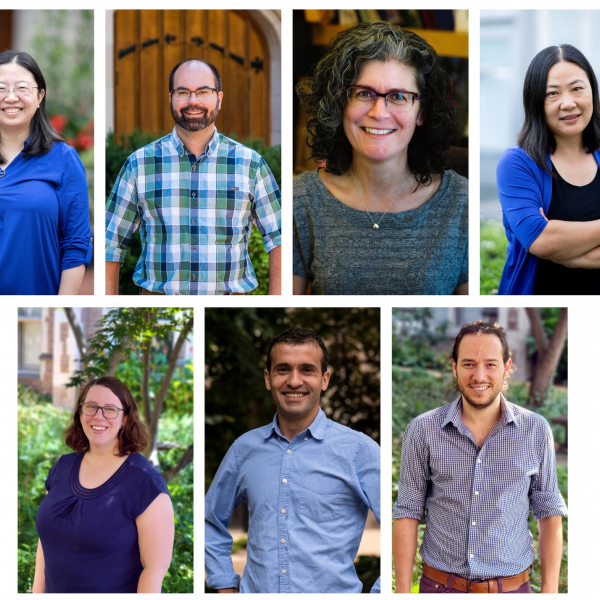The period following WWII was an important time for most of British West Africa as many colonies began to emerge from British colonial rule and begin the arduous process of state-making. Women were often not allowed any official positions in these new governments, but graduate student Adwoa Opong is studying how they were still able to influence policy through their involvement in social welfare work.

Adwoa Opong, a PhD student in history at Washington University and the first McDonnell International Scholar from the University of Ghana, researches the history of women’s social welfare work in Ghana after the Second World War, a history that became entangled in the politics of decolonization when Ghana declared its independence.
By studying social work and social workers, Opong is highlighting an important part of the history of decolonization of state-building in Africa that generally gets overlooked. “I describe it as a social and intellectual history of decolonization,” she explains, “one that does not focus on the big parties and the political figures, but focuses on the ways in which a small institution like social welfare provides this space for educated women on the continent to carve out careers for themselves.”
Opong focuses specifically on the National Federation of Gold Coast Women, which emerged in the years leading up to Ghana’s independence in 1953. This organization had a strong presence in both the Ghanaian and international women’s movements, but it has been largely forgotten. Opong examines how the Federation, acting as a cultural interlocutor, claimed the right to define and articulate the needs of uneducated Ghanaian women during key transitional moments in Ghana’s history and the tensions that emanated from that process as social work became entangled in the politics of decolonization. Was this a salvationist project? How might the history of the organization during this period help us understand gender, decolonization, and development in post war Ghana?
Opong grew up in Ghana, and was herself unfamiliar with the work of the organization and its’ leader, Evelyn Amarteifio, until she began her graduate work. “I had never heard of it. It was not one of the big groups people spoke about.”
Opong "focuses on the ways in which a small institution like social welfare provides this space for educated women on the continent to carve out careers for themselves.”
The erasure of once-popular voluntary organizations like the Federation from public memory likely has much to do with the fact that since the 1990s, the most visible women’s movement in Ghana has been run by the state, with the party setting the agenda. While the prominence of the state-run women’s groups have overshadowed groups like the Federation, their work, and the changes they have been able to make in Ghanaian politics continue to be important to the evolving nation.
Opong first learned of the Federation when she was writing her master’s thesis at the University of Ghana. She had been searching through newspaper archives for information on another topic when she kept seeing articles about the Federation popping up. She found out that the Federation’s papers had been donated to her institution, but she did not have access to them. She contacted Professor Jean Allman at WashU, who had done extensive work on gender, nationalism, and decolonization in Ghana and, most importantly, had knowledge about the Federation and was able to get her access to the papers.
Opong’s research into the Federation only made up a small part of her master’s thesis, but her relationship with Allman, and WashUs new partnership with the University of Ghana through the McDonnell International Scholars Program, encouraged her to come to St. Louis for her doctoral work. As she was developing her research project, she kept coming back to the Federation and realized that its history could answer a lot of questions about the global politics of development, and women’s role in it.
Social welfare was one of the few career paths available to women in Ghana. Women from upper-class families were sent to college to become teachers, but once they married, they were legally required to quit their teaching jobs. Social work, however, was a field that was open to married women and a way they could get involved in the politics of the new nation.
Evelyn Amarteifio’s goal in creating the Federation was to “improve” the lives of Ghanaian women, a project that Opong says “definitely coincided with independence and the larger political and social changes in the country.” It was involved in a number of projects, many of which were focused on educating lower-class women in Ghana.
What set the Federation apart from other women’s groups in the country and made it politically powerful were its international ties. It was affiliated with several international women’s groups, including Associated Country Women of the World, the International Alliance of Women, and others. Although it was run exclusively by Ghanaian women, these international relationships played a role in shaping its ideology in accordance with many transnational and international trends when it came to the “woman question.” Because of these ties, Opong says, “the organization definitely amassed substantial political power, enough to affect social policy, making women’s welfare, issues surrounding women’s rights, central to public discourse.”
Women’s organizations in the west praised the Federation and the work it was doing for Ghanaian women. Amarteifio “is doing all this within the global context where the popular image of the African woman in the West was oppressed . . . so oppressed that she needs a liberator,” Opong says. “These educated women who were doing work like this were symbols of progress to the West. They understood and were doing ‘development’ the right way.”
The United States was also interested in supporting Amarteifio and the Federation because of Ghana’s unaligned stance during the Cold War. When Ghana held a large international conference on Women of Africa and African Descent in 1960, The Women’s African Committee, the women’s wing of the Africa-America Institute that the United States established during the Cold War, sent representatives. In the Committee’s archives, Opong was surprised to find notes from the representatives to the conference detailing all of the speakers’ political affiliations and any possible ties to the Soviet Union. The representatives’ notes also worry that Amarteifio is distrusted in Ghana because she is seen as a “pet of the US,” and recommended sending more Black delegates to build pro-American sentiments in countries like Ghana.
Opong finds these records intriguing because most cultural histories of the Cold War would not mention small players like Amarteifio. “People like Amarteifio, although we may see them as irrelevant, are actually taking part in knowledge production about the continent at a time when the politics of the Cold War is defining a lot of these continental relationships,” she says. “It has the potential to give us a new gendered perspective on the Cold War.”
Within Ghana, the Federation had many supporters, but it also received some pushback from people who thought that its ideals were too “Western” and elitist. “You find people making these assertions in the newspapers, saying things like, ‘Instead of pushing for changes in marriage, why don’t you advise women to be better wives. If they were better wives, their husbands would not leave them,’” Opong says. She believes that it is because of this pushback that it took so long, until 1991, to make legal changes to marriage laws.
The Federation’s international ties also created tension, as the government was very concerned about the ways in which the new nation was being represented in the outside world. Kwame Nkrumah, and his Convention People’s Party (CPP), wanted control over organizations that had a global face, and tried to get the Federation to incorporate itself within the party as a part of a new state-controlled women’s group. However, the Federation, which had long taken a non-partisan stance in Ghanaian politics, refused.
On September 10, 1960, the Federation was officially dissolved as the new, state-run women’s organization was implemented within the new one-party state. It would not revive itself until the Nkrumah government was overthrown. Opong notes that this dissolution and reemergence tracks a general change in Ghanaian politics and that studying this organization’s history can tell us a lot about the ideologies of state-building that were developing and changing during the post-war period.
In her next project, Opong is looking forward to broadening her focus to study more about the politics of development and its entanglement in Ghana’s postwar politics.




